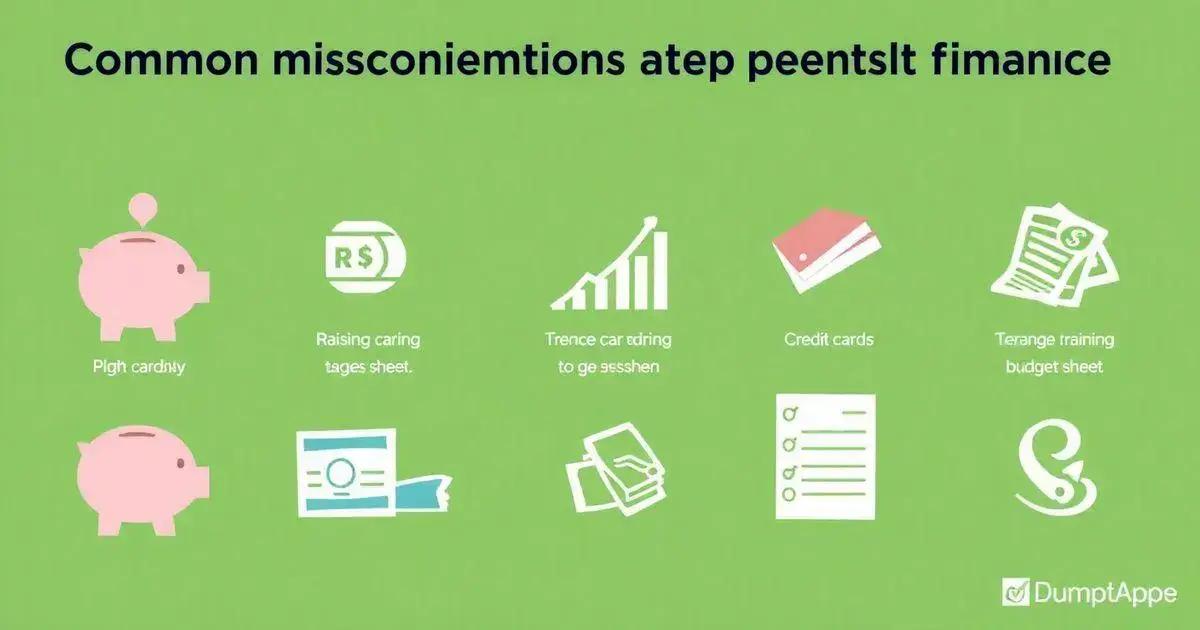Seal of Personal Finance is your first step toward financial freedom and stability. It represents smart money habits, effective budgeting, and strategic saving. Start making financial decisions that align with your long-term goals today.
Embrace smart financial choices by setting clear financial objectives and sticking to your plan. Learn how to avoid debt, create an emergency fund, and grow your savings consistently. Every financial choice matters on your journey to success.
Ready to achieve financial security? Take control now and build a stress-free financial life with healthy money habits.
Understanding the Seal of Personal Finance
The seal of personal finance is a vital concept that ensures you are on the right track to achieving financial stability and freedom. It represents a comprehensive understanding of how to manage your resources wisely, prioritize your spending, and save for future goals.
Core Elements of the Seal
At its core, the seal encompasses several fundamental principles:
- Budgeting: Creating a budget helps track your income and expenses, ensuring you’re living within your means.
- Savings: A solid savings plan is crucial for emergencies and future investments.
- Investing: Knowing how to invest wisely can grow your wealth over time.
When one understands and adopts these principles, they can achieve a balanced financial life, paving the way towards financial freedom.
Why It Matters
Understanding the seal of personal finance allows individuals to avoid common pitfalls, like overspending or falling into debt. It educates them about the importance of making informed decisions, whether about daily expenses or long-term financial goals.
Practical Applications
Applying the seal of personal finance in your life involves setting clear financial goals, whether that be saving for a new home, starting a business, or planning for retirement. This proactive approach not only helps in making better financial choices but also brings peace of mind.
Ultimately, the seal of personal finance is about taking control of your financial future. Adopting these principles and practices is the first step towards unlocking the door to a secure, prosperous financial life.
The Importance of Financial Literacy

Financial literacy is a crucial skill that everyone should possess. It involves understanding how money works, including how to earn, spend, save, and invest it wisely. Having a solid grasp of financial concepts can greatly benefit individuals and families alike.
Why Financial Literacy is Essential
When you are financially literate, you can make informed decisions that affect your future. This knowledge helps you:
- Budget Effectively: Knowing how to create and stick to a budget is essential for controlling expenses.
- Avoid Debt Traps: Financial literacy helps you understand the dangers of accruing too much debt and offers strategies to avoid such pitfalls.
- Plan for Retirement: Understanding the importance of saving early for retirement can lead to a comfortable future.
Additionally, educated individuals are less likely to fall victim to scams and misleading financial products.
Real-World Benefits
Financial literacy not only helps in personal finance but also contributes to the overall economy. When more people understand how to manage their finances, they are more likely to invest in businesses and contribute to economic growth.
Being financially literate can also create a ripple effect; when individuals learn to manage their finances, they often teach their family members and friends, thus promoting a financially educated community.
Building Financial Literacy
Improving your financial literacy can start with simple steps such as:
- Reading books and articles about personal finance.
- Taking online courses or attending workshops.
- Using financial management tools and apps to keep track of your spending.
By investing time in learning about finance, you can cultivate a skill set that will bring you closer to achieving financial freedom.
How to Create a Personal Finance Plan
Creating a personal finance plan is essential for managing your money effectively. A solid plan will help you reach your financial goals, whether that means saving for a house, paying off debt, or planning for retirement.
1. Assess Your Current Financial Situation
Start by gathering your financial documents, such as bank statements, pay stubs, and bills. Understand what you own (assets) and what you owe (liabilities). This overview gives you a clear picture of your finances.
2. Set Clear Financial Goals
Define your short-term and long-term financial goals. Short-term goals may include saving for a vacation, while long-term goals might involve retirement savings or a child’s education. Make sure your goals are SMART: Specific, Measurable, Achievable, Relevant, and Time-bound.
3. Create a Budget
Use your assessment to develop a budget that works for you. List all your income sources and expenditures. This will help you identify areas where you can cut back and save more. Aim to allocate a percentage of your income to savings each month.
4. Build an Emergency Fund
An emergency fund is essential for unexpected expenses such as medical bills or car repairs. Aim to save three to six months’ worth of living expenses in a separate, easily accessible account.
5. Pay Off Debt
If you have debt, include strategies for paying it off in your finance plan. Focus on high-interest debts first and explore options like debt consolidation to simplify payments.
6. Invest for the Future
Investing is key to building wealth over time. Begin by educating yourself on different investment options, such as stocks or bonds, and consider utilizing tax-advantaged accounts like IRAs.
7. Review and Adjust Regularly
Financial planning is not a one-time event. Regularly review your progress toward your goals, and make adjustments as needed. Life changes, and so should your financial plan.
Common Misconceptions about Personal Finance

Understanding personal finance comes with many misconceptions. Clearing these up can help improve your financial literacy and lead to better decisions.
1. You Need to Be Rich to Invest
Many believe that investing is only for wealthy people. However, anyone can start investing with small amounts. There are many platforms that allow you to invest a little at a time.
2. Budgeting Is Too Restrictive
Some think that budgeting limits your spending. In reality, budgeting helps you understand where your money goes and allows you to plan for what really matters. It’s not about restriction; it’s about control.
3. All Debt Is Bad
While high-interest debt can be detrimental, some types of debt can be beneficial. For example, a mortgage can help you build equity over time. Understanding the difference is key to managing your finances.
4. Financial Planning Is Only for Older People
Many believe that financial planning is reserved for those near retirement. However, starting young gives you a significant advantage. The earlier you plan, the more you can benefit from compound interest.
5. You Need a Financial Advisor to Succeed
While financial advisors can provide valuable guidance, it’s possible to create a personal finance plan on your own. Resources are widely available online that offer tools and tips for managing your finances independently.
6. High Income Equals Financial Success
Just because someone has a high income doesn’t mean they manage their money well. Financial success is more about good habits and smart choices than just making a lot of money.
7. Credit Cards Are Always Bad
Some think credit cards are evil, but they can be useful when managed correctly. Using them responsibly can help build credit history, which is important for future loans and mortgages.
8. You Should Always Save First Before Investing
While saving is important, there are benefits to investing even small amounts early. Depending on your financial goals, a balanced approach to saving and investing can work better than focusing solely on one.
Top Tools for Managing Personal Finances
There are many tools for managing personal finances that can help keep your money organized and achieve your financial goals. Here are some of the top options available today:
1. Budgeting Apps
Budgeting apps like Mint and YNAB (You Need A Budget) allow you to track your spending, set budget goals, and receive alerts about your financial habits. These apps make it easy to keep an eye on your income and expenses in real-time.
2. Expense Trackers
Apps such as Expensify help users to manage and categorize expenses. They can also create expense reports for business use, making tracking easier. This is especially helpful for those who travel for work or need to manage multiple income sources.
3. Investment Platforms
Investment apps like Robinhood and Acorns make investing accessible for everyone. Robinhood allows users to trade stocks, while Acorns rounds up purchases and invests the difference automatically.
4. Savings Tools
Apps like Qapital help users save money through customizable rules. For example, you can set it to save a certain amount every time you make a purchase, making saving effortless.
5. Debt Management Tools
Tools like Undebt.it help you create a debt repayment plan. This tool focuses on strategies such as the debt snowball or avalanche methods, allowing you to pay off your debts more efficiently.
6. Financial Planning Software
Software like Personal Capital not only tracks spending but also provides investment tracking and retirement planning features. This all-in-one tool helps users understand their overall financial health.
7. Bill Management Services
Services like Pickle or Truebill help track bills and subscriptions. These services can also provide reminders for due dates, ensuring you never miss a payment.
8. Online Calculators
Free online calculators can assist with budgeting, retirement savings, mortgage payments, and more. Websites like SmartAsset provide various calculators that can help you assess your financial choices accurately.
By integrating tools and resources such as the Seal of Personal Finance, you can strengthen your financial habits and make informed, strategic choices to secure your financial future.
FAQ – Frequently Asked Questions about Personal Finance
What is the seal of personal finance?
The seal of personal finance represents a comprehensive understanding of how to manage personal finances effectively, focusing on budgeting, saving, and investing.
Why is financial literacy important?
Financial literacy is essential for making informed decisions about money, helping individuals avoid debt traps and plan for the future.
How can I create a personal finance plan?
To create a personal finance plan, assess your financial situation, set clear goals, create a budget, and regularly review and adjust your plan.
What tools can I use to manage my personal finances?
Tools like budgeting apps (Mint, YNAB), expense trackers (Expensify), and financial planning software (Personal Capital) can help manage your finances effectively.
What are some common misconceptions about personal finance?
Some misconceptions include that you need to be rich to invest, all debt is bad, and budgeting is too restrictive.
How can I start building a budget?
Begin by tracking your income and expenses, categorize them, set budgeting goals, and choose a budgeting method that works for you.